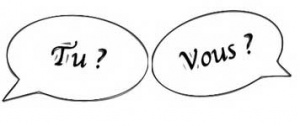Difference between revisions of "Language/French/Grammar/Polite-Form"
Jump to navigation
Jump to search
m (Quick edit) |
m (Quick edit) |
||
| Line 35: | Line 35: | ||
Please edit this page to improve it! | Please edit this page to improve it! | ||
==Related Lessons== | ==Related Lessons== | ||
* [[Language/French/Grammar/ | * [[Language/French/Grammar/Adjectives-which-normally-follow-the-noun|Adjectives which normally follow the noun]] | ||
* [[Language/French/Grammar/ | * [[Language/French/Grammar/Intransitive-verbs-and-auxiliary-“être”|Intransitive verbs and auxiliary “être”]] | ||
* [[Language/French/Grammar/Nouns|Nouns]] | * [[Language/French/Grammar/Grammatical-and-real-gender|Grammatical and real gender]] | ||
* [[Language/French/Grammar/Adjectives-which-normally-occur-before-the-noun|Adjectives which normally occur before the noun]] | |||
* [[Language/French/Grammar/How-to-write-and-read-numbers|How to write and read numbers]] | |||
* [[Language/French/Grammar/Verbs-whose-stems-end-in-c—-or-g—|Verbs whose stems end in c— or g—]] | |||
* [[Language/French/Grammar/Impersonal-verbs|Impersonal verbs]] | |||
* [[Language/French/Grammar/Plurals-of-nouns-ending-in-eu,-au,-eau|Plurals of nouns ending in eu, au, eau]] | |||
* [[Language/French/Grammar/Adverbs-ending-in-—ment-derived-from-the-masculine-form-of-an-adjective|Adverbs ending in —ment derived from the masculine form of an adjective]] | |||
* [[Language/French/Grammar/Nouns-which-refer-both-to-males-and-to-females|Nouns which refer both to males and to females]] | |||
* [[Language/French/Grammar/Position-of-object-pronouns-with-imperatives|Position of object pronouns with imperatives]] | * [[Language/French/Grammar/Position-of-object-pronouns-with-imperatives|Position of object pronouns with imperatives]] | ||
* [[Language/French/Grammar/Easy-way-of-generating-the-present-subjunctive|Easy way of generating the present subjunctive]] | * [[Language/French/Grammar/Easy-way-of-generating-the-present-subjunctive|Easy way of generating the present subjunctive]] | ||
Revision as of 17:21, 26 February 2023
See translation of this page in Arabic: https://polyglotclub.com/wiki/Language/French/Grammar/Polite-Form/ar
for a more complete lesson, go here: https://polyglotclub.com/wiki/Language/French/Grammar/Vous-and-Tu-Complete-Guide
Let's talk about the use of "tu" and "vous" in French.
The words "tu" and "vous" both mean you. Which word for you is used depends on the person being addressed.
- "tu" is used with family, friends or among young people. In other cases it can be considered rude.
- "vous" is used with the persons you do not know or to whom you have respect like your teacher, your boss or a person older than you.
So beware, if you do not know the person, it is best to always use "vous" in French.
Tu
- Tu vas bien Étienne ? (How do you do, Etienne?)
- Oui, ça va et toi Franck? (Well, and you Franck?)
- Tu connais cette fille? (Do you know that girl?)
Vous
- Bonjour Monsieur, vous allez bien ? (Good morning sir, how are you?)
- Très bien Madame, merci ! (Very well, madam, thank you!)
VIDEOS
Please edit this page to improve it!
Related Lessons
- Adjectives which normally follow the noun
- Intransitive verbs and auxiliary “être”
- Grammatical and real gender
- Adjectives which normally occur before the noun
- How to write and read numbers
- Verbs whose stems end in c— or g—
- Impersonal verbs
- Plurals of nouns ending in eu, au, eau
- Adverbs ending in —ment derived from the masculine form of an adjective
- Nouns which refer both to males and to females
